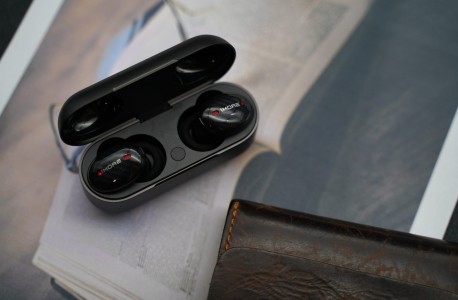In an increasingly noisy world, the quest for peace and quiet has led many individuals to explore various solutions for sound management. Among these solutions, noise-cancelling earplugs have emerged as a popular choice for those seeking to minimize unwanted sounds. Whether it’s the incessant hum of city life, the disruptive noises of construction, or the unwelcome sounds of a snoring partner, these earplugs offer a refuge from auditory disturbances. Their growing popularity can be attributed to their ability to provide a more serene environment, allowing users to focus better, sleep more soundly, and enhance their overall well-being.
The technology behind noise-cancelling earplugs is fascinating. They typically use active noise control (ANC) to reduce unwanted ambient sounds. This is achieved through microphones that pick up external noises and speakers that produce sound waves that are the exact opposite, effectively canceling out the noise. This technology has evolved significantly, making these earplugs more effective and accessible than ever before. The combination of passive noise isolation and active noise cancellation creates a powerful barrier against sound.
Different types of noise-cancelling earplugs are available on the market, catering to various needs and preferences. For instance, some earplugs are designed specifically for sleeping, featuring soft materials that provide comfort during prolonged use. Others may be tailored for musicians, offering a balanced sound experience while still protecting hearing. The diversity in design means that users can find an option that best suits their lifestyle, whether they are seeking peace in a crowded café or protection during a loud concert.
Comfort is a critical factor when choosing noise-cancelling earplugs. Many models are made from silicone or foam, which conform to the shape of the ear canal, ensuring a snug fit. This is essential not only for effective noise cancellation but also for extended wear. Users should consider the size and shape of their ears when selecting earplugs, as a proper fit can significantly enhance both comfort and performance. Additionally, some brands offer customizable options that allow users to mold the earplugs to their unique ear shape.
The effectiveness of noise-cancelling earplugs can also be influenced by their noise reduction rating (NRR). This rating indicates how much sound the earplugs can block out, with higher ratings providing greater sound isolation. When purchasing earplugs, it’s important to pay attention to the NRR to ensure that they meet individual needs. For instance, someone living in a noisy urban environment may require earplugs with a higher NRR compared to someone who simply wants to block out the sounds of a television.
Maintenance and care of noise-cancelling earplugs are crucial for ensuring their longevity and effectiveness. Regular cleaning can prevent the buildup of dirt and wax, which can interfere with their performance. Most silicone and foam earplugs can be easily washed with soap and water, while electronic models may require specific cleaning methods to avoid damage. Users should always refer to the manufacturer’s instructions for the best care practices.
The benefits of using noise-cancelling earplugs extend beyond mere sound reduction. Many users report improved concentration and productivity, especially in noisy work environments. By minimizing distractions, individuals can focus better on tasks at hand, leading to enhanced performance. Additionally, for those who struggle with sleep due to external noises, these earplugs can create a more conducive environment for rest, ultimately improving overall health and well-being.
Despite their advantages, noise-cancelling earplugs are not without limitations. For instance, while they are effective at blocking out consistent sounds, they may not perform as well against sudden, loud noises. This can be a concern for individuals who work in environments where such sounds are prevalent. Furthermore, some users may experience discomfort or a feeling of pressure when using these earplugs, particularly if they are not accustomed to wearing them.
Research into the long-term effects of using noise-cancelling earplugs is still ongoing. While many users report positive experiences, there is a need for further studies to understand the implications of prolonged use. Investigating how these earplugs affect hearing health, sleep quality, and overall quality of life can provide valuable insights for manufacturers and consumers alike. Additionally, exploring the psychological effects of noise reduction on stress and anxiety levels could open new avenues for mental health support.
In conclusion, noise-cancelling earplugs represent a significant advancement in sound management technology, offering users a chance to reclaim their auditory environment. Their ability to enhance focus, improve sleep, and provide comfort makes them an invaluable tool in today’s noisy world. As research continues to evolve, it will be important to examine both the benefits and potential drawbacks of prolonged use. Future studies could delve into the psychological impacts of noise reduction, as well as the development of more advanced technologies that further enhance user experience. With the right approach, noise-cancelling earplugs can serve as a gateway to greater peace and productivity.

